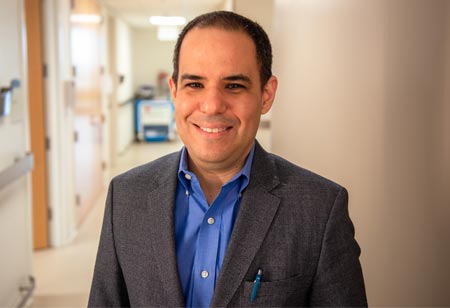Thank you for Subscribing to Healthcare Business Review Weekly Brief

Revolutionizing Sleep Medicine: Emerging Technologies and Multidisciplinary Approaches in Diagnosis and Treatment
Healthcare Business Review
The field of sleep medicine is changing; its evolution is boosted by emerging technology in diagnosing and treating common sleep disorders, such as obstructive sleep apnea (OSA) and insomnia. Along with this, medical therapy for weight loss is expected to be available beyond diabetes in patients where OSA is directly associated with obesity.
Over the last decade, the volume of OSA diagnosis testing has migrated from sleep lab testing to home sleep studies. Wearables like smartwatches will likely replace home sleep study devices. The validation of artificial intelligence (AI) for scoring abnormal breathing events will decrease the need for a remote review by sleep tech. These changes will reduce the waiting time for results; if they are positive, waiting for a CPAP device will also be less. Sleep lab diagnostic testing will remain the standard of care for children and adolescents.
In contrast, for adults, sleep diagnostic testing in the sleep lab will further shift toward patients with severe co-morbidities or a high risk of complex sleep disorders. The treatment of sleep apnea is difficult to forecast because of its heterogenicity. It is likely to move to less invasive treatment options, like drug therapy combinations, probably in a subgroup of patients where obesity or anatomical factors are not directly associated with OSA.
Drugs for chronic insomnia may be effective in the short term, but many of these drugs are associated with undesirable side effects and a risk of dependence. In comparison, cognitive behavior therapy (CBT-i), the current standard of care, works in the long run but needs commitment by the patient. There are only a few sleep behavior therapists who can provide CBT-i. In recent years, digital CBT-i (via phone app or website) has proven superior to sleep education alone, and ongoing clinical studies favor its practicality. It is helpful for sleep disorder centers that do not have enough sleep behavior therapists. Digital CBT-i might also be beneficial to institutions or corporations that want to decrease the rate of tardiness and absenteeism among their employees.
The validation of artificial intelligence (AI) for scoring abnormal breathing events will decrease the need for a remote review by sleep tech.
In summary, I forecast that managing common sleep disorders will be driven by evolving technology, enhancing patients' healthcare access with a multidisciplinary approach.









